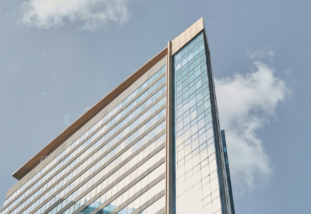You build the structures and cities of tomorrow, but are your projects properly insured? When it comes to construction insurance, there are a few things to consider so you can conduct your activities with complete peace of mind. If you’re about to launch a new construction project, here are three simple steps to follow to make sure your work is covered.
STEP 1
Obtain your Régie du bâtiment du Québec (RBQ) licence
Getting your RBQ licence is the first step toward beginning a construction project. In Quebec, any building contractor who carries out construction work or has construction work done must hold a valid licence. There are various categories to choose from:
- General contractor
- Specialized contractor
- General owner-builder
- Specialized owner-builder
To find out which category best applies to your situation, visit the Quebec government’s website.
Once you’ve received your RBQ licence, you must obtain the right surety bond (licence security) from your broker to successfully complete your project. Surety bond insurance supports businesses by helping them carry out their projects. Some businesses use it to lend credibility to their bids, while others purchase it simply because it’s required by law. To find out more, contact your broker here at Lareau.
STEP 2
Obtain adequate civil liability coverage and declare your activities
Working with your insurance broker, the next step is to build an insurance policy that provides adequate coverage every step of the way, based on your activities and the associated risks. In insurance, this is referred to as risk management.
Whether you’re a general contractor or a subcontractor, civil liability coverage is the starting point for your policy. Civil liability insurance covers material or bodily injury that you may involuntarily cause to a third party or one of your clients, anywhere you conduct your activities. It’s important to understand that no insurer will take your defence following a claim resulting from undeclared activities.
One example is if you do renovation work for a client that involves welding, set fire to the building, and also burn down the building next door. In this situation, liability coverage is essential to protect your business in the event of a lawsuit or claim arising from your activities or work. It’s important to choose the right coverage limit based on the potential risks, since the consequences could be catastrophic for the survival of your company.
Do you have enough coverage? A higher liability limit can protect you from major losses. If your work sites are located near other businesses or residential buildings and you cause a loss, you will be responsible for any loss of income and property damage to the affected businesses and residential buildings. With the right liability limit, you won’t be responsible for this type of cost.
Here’s an interesting scenario to consider: if I’m a subcontractor, do I need to take out my own insurance or am I automatically covered by the insurance of the general contractor who hired me?
The answer is that the subcontractor must purchase their own civil liability insurance. The general contractor must obtain proof that their subcontractor has the required insurance coverage (a warranty in your insurance policy). If the general contractor fails to do so, the insurer could refuse to pay for damage caused by the subcontractor.
STEP 3
Select specialized construction coverage for a tailor-made insurance solution
There are various types of basic and additional coverage you can purchase to build the ideal policy for your projects and construction work. At Lareau, we have access to insurers that specialize in your field, allowing us to offer equally specialized products such as builder’s risk insurance and wrap-up insurance.
- Builder’s risk insurance
This type of insurance covers your project and pays for damages in the event of a claim. It’s important to note that builder’s risk insurance covers direct damage to the insured project. Indirect damage resulting from extensions or delays is not covered. To find out whether materials stored off-site are covered by the policy, you will need to speak to your broker.
- Wrap-up insurance
Wrap-up insurance for contractors offers coverage for your own liability and for subcontractors working on the project. You may be held liable for damage caused by another contractor on your work site. With this insurance, all contractors can be insured under one policy instead of each contractor purchasing their own liability coverage.
As a general contractor, you are in charge of the work site and are therefore responsible for building and carrying out the project. Here are three important things to consider:
- You must insure the total project value/cost (inform your broker of the cost breakdown).
- You must meet and be aware of your insurer’s requirements (liability insurance requirement for all subcontractors and warranties for open flame heating, hot work, fire extinguishing equipment and fences). The most important thing to remember is that failure to comply with any of these conditions renders the contract null and void.
To conclude, in addition to these types of coverage, there are many other types of additional coverage that may be useful to purchase for peace of mind, such as insurance for equipment breakdowns, pollution, debris removal, additional costs and loss of income due to delays. To find out more, contact your broker or visit our web page.
After obtaining your licence, choosing the right liability coverage and building your tailor-made insurance solution, you will finally be ready to get started on your project with complete peace of mind. For any questions about your current policy or to get a quote for your upcoming projects, contact us!



